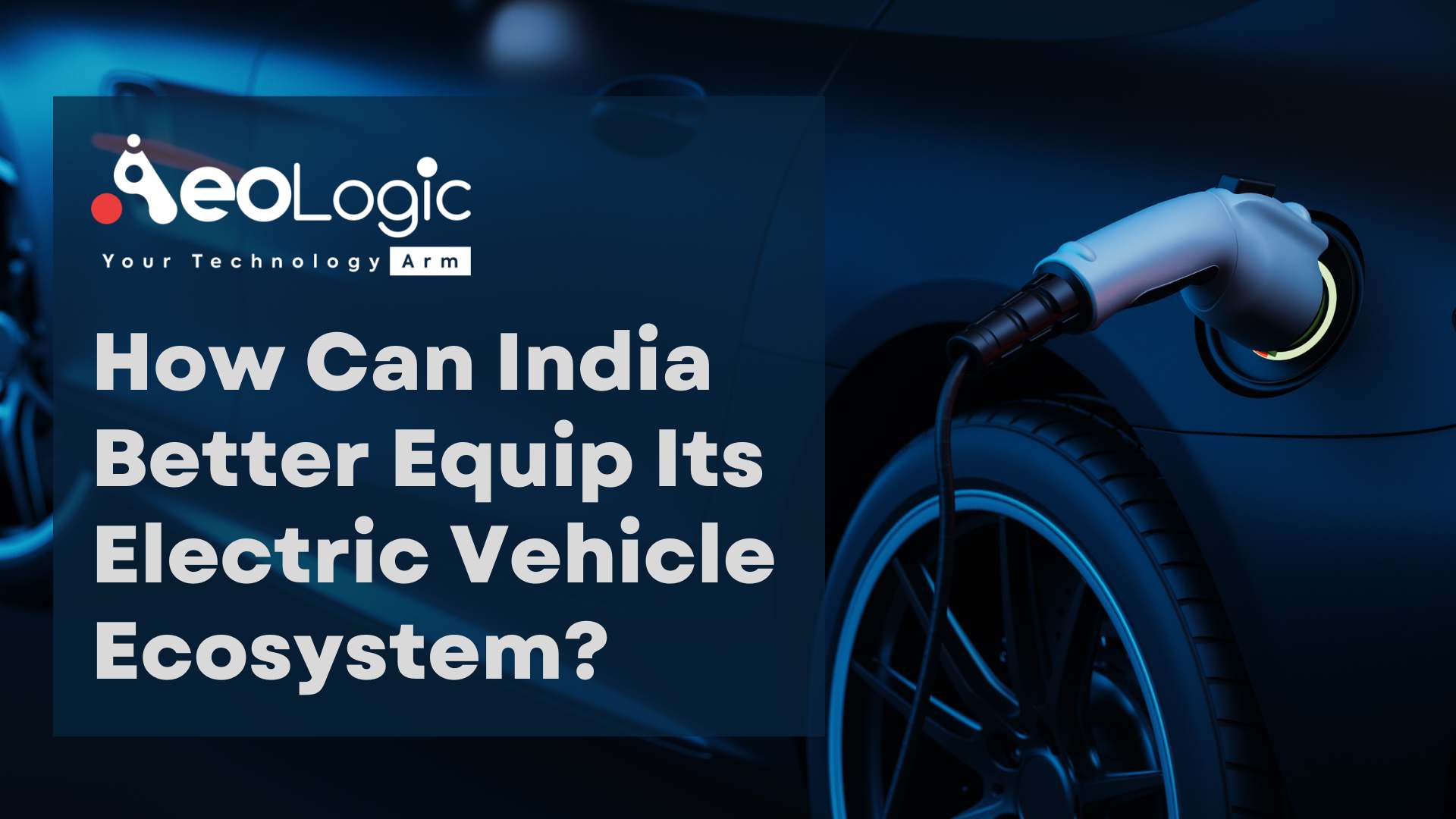Electric vehicle ecosystems are going to be the future of urban mobility. Concerns about the environment and the climate are motivating more customers, particularly younger ones as it encourages them to choose electric vehicles over those powered by fossil fuels. Vehicles that run on conventional fuels will not be phased out entirely in the near future.
Statistics on Electric Vehicle Ecosystem
However electric vehicles will gain a higher market share. As per the recent stats, from $1.4 billion in 2021, the Indian electric vehicle market is anticipated to surpass $15 billion by 2027. Therefore, expecting annual growth of 47%.
The immediate and greater challenge for India, however, is to create a safe and sound electric vehicle environment. The component supply chain will be a factor. (Ambien) With electrification as a major driver of this transformation, the mobility industry is clearly in one of its most disruptive periods. Every year, more than 100 new electric vehicles (EV) models are introduced around the world. Furthermore, it is predicted that by 2040, one in every three cars sold will be electric vehicles.
The EV disruption in the automobile industry is pretty democratic. Since the focus on new technologies has opened up an opportunity for new players to enter the industry. Several incumbent automobile manufacturers have been slow to act. Therefore, giving EV start-ups the opportunity to gain a foothold in the market. But, regardless of these opportunities, EV start-ups require a supportive ecosystem to assist them to grow. As well as accomplish their full potential.
EVs: Long-term Opportunities That are Not a Zero-sum Game
It is certain that EVs have huge potential to deal both with climate change as well as fuel economies. Even though there is considerable competition between several companies of different sizes. Anyone who has spent any time with EVs understands that they are not a zero-sum game, regardless of technology. Because of the magnitude of the problems and their extreme variety, multiple companies will be required to provide a wide range of EV solutions. This is not to say that the EV industry will not be competitive, but rather to highlight the opportunities for collective movements and collaboration, especially among start-ups.
This could lead to a new type of EV organization that is more interested in ecosystem creation than product development. Consider testing equipment: a single EV start-up may not be able to afford all of the necessary equipment. Although an organization comprised of multiple EV start-ups could afford this equipment. As a result, they can spread the cost over time among their members. This is a far more efficient way of utilizing the equipment. Furthermore, it provides a more efficient model at a time when equipment is becoming more expensive and difficult to obtain. Start-ups would benefit greatly from access to cutting-edge equipment while minimizing risk, capital expenditures, and cash flow issues.
The Challenges are Many
There are many encounters that EV start-ups deal with. But given the fact that it is a relatively new and innovative technology in a capital-intensive industry, Research & Development (R&D) is undoubtedly a huge challenge for many start-ups.
In 2019-20, the world’s top 20 car manufacturers used up close to a combined INR 7 lakh crores on R&D in EVs – numbers that start-ups will struggle to resonate with. Whereas this is a limitation, start-ups do have the benefit of flexibility and agility as they are not beholden to established manufacturing processes and product designs. Nonetheless, important components like batteries are still expensive as they account for 40% of an EVs production cost. Indian start-ups will especially struggle with this in building an electric vehicle ecosystem as the availability of raw materials for lithium-ion batteries is limited. Nevertheless, there are some initiatives, such as a Production Linked Incentive, to motivate alternative battery chemistries with more indigenous materials, research on them is complex, scattered, and expensive – restricting the entry of start-ups into this industry.
Another key challenge before the electric vehicle ecosystem is the non-availability of a component manufacturing ecosystem or supply chain, which makes it the backbone of any industry. There are no supply chain or component experts in the industry at the moment. This is of course a given fact because of the budding stage of the industry in India, but then again it is the need of the hour to streamline our energies on creating a thriving component manufacturing infrastructure if we want domestic component manufacturing for electric vehicles to succeed.
Conclusion
Constructing the electric vehicle ecosystem provides an enormous business opportunity for Indian manufacturers across the value chain which includes manufacturers, service providers as well as traders. Concerns over electric vehicle range as well as ambiguity over charging infrastructure are building obstacles in the acceptance of electric vehicles in the country. The implementation of EVs will hugely rely on government policies and stakeholders such as OEMs, start-ups, charging infrastructure developers as well as battery manufacturers to come together and aim for collaborative partnerships.
To know more about emerging technologies, please visit us at Aeologic Technologies.

Manoj Kumar is a seasoned Digital Marketing Manager and passionate Tech Blogger with deep expertise in SEO, AI trends, and emerging digital technologies. He writes about innovative solutions that drive growth and transformation across industry.
Featured on – YOURSTORY | TECHSLING | ELEARNINGINDUSTRY | DATASCIENCECENTRAL | TIMESOFINDIA | MEDIUM | DATAFLOQ









